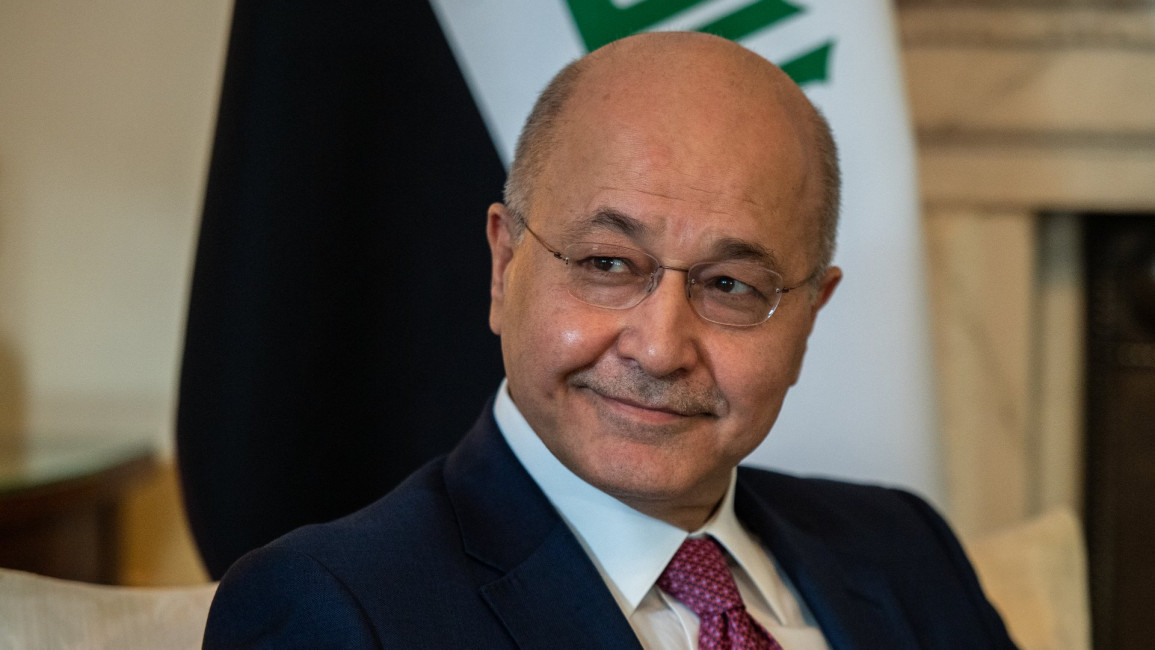Kurdish arrest of journalist accused of 'defaming' Iraqi president sparks outrage
Police in the northeastern Iraqi Kurdish city of Sulaymaniyah arrested Jaafer, a columnist for the independent news website Peyser Press, transferring him to the Azmar police station where he remains in detention, according to local media.
Jaafer faces criminal defamation charges sparked by a legal complaint filed by the lawyer of Iraqi President Barham Saleh after Jaafer wrote a column critical of the leader.
If convicted, the journalist could face a year in prison and a fine.
The Committee to Protect Journalists (CPJ) called on Kurdish authorities to immediately release Jaafer, drop all charges against him, and stop the crackdown on press freedom.
"Iraqi authorities should develop a thicker skin and stop resorting to the criminal code to stifle critical reporting and commentary," CPJ's Middle East and North Africa representative, Ignacio Miguel Delgado, said in a statement.
Twitter Post
|
"Iraqi President Saleh should immediately drop the defamation complaint against journalist Bahroz Jaafer, and local authorities should release him unconditionally."
The article in question appears to be a column by Jaafar published on 29 August, entitled: "How much longer will the president be driving on the wrong side?"
In the piece, Jaafer accuses Saleh - who is also Kurdish - of failing to support Iraqi Kurdistan in disagreements with the Iraqi government over land, oil, and the autonomous region’s budget.
Jaafer has been ordered to remain in detention until his hearing on 30 September, unless he is granted bail, the head of the Sulaymaniyah branch of the state-funded Kurdistan Journalists' Syndicate Karwan Anwar told local news outlet Rudaw.
Media outlets in Iraqi Kurdistan have been facing a widening government crackdown in recent months, shattering the region's reputation as a liberal refuge for Iraqis fleeing pressure from paramilitary groups, tribes and powerful politicians in the more conservative south.
Violations against journalists and media outlets has increased in recent months, particularly targeting those who covered protests against the Kurdistan Regional Government (KRG) over unpaid state salaries and Turkish incursions into border areas.
"Despite laws guaranteeing press freedom in the region, when political and economic crises intensify, the limits on press reach a point of strangulation," the region's Metro Centre for Journalist Rights and Advocacy said in August.
Follow us on Facebook, Twitter and Instagram to stay connected

![Afghanistan floods [AFP] Afghanistan floods [AFP]](/sites/default/files/styles/image_330x185/public/media/images/0C0EC6AD-9E62-4D73-9148-11B37ECD5C46.jpg?h=d1cb525d&itok=2Qgw9O8Y)

